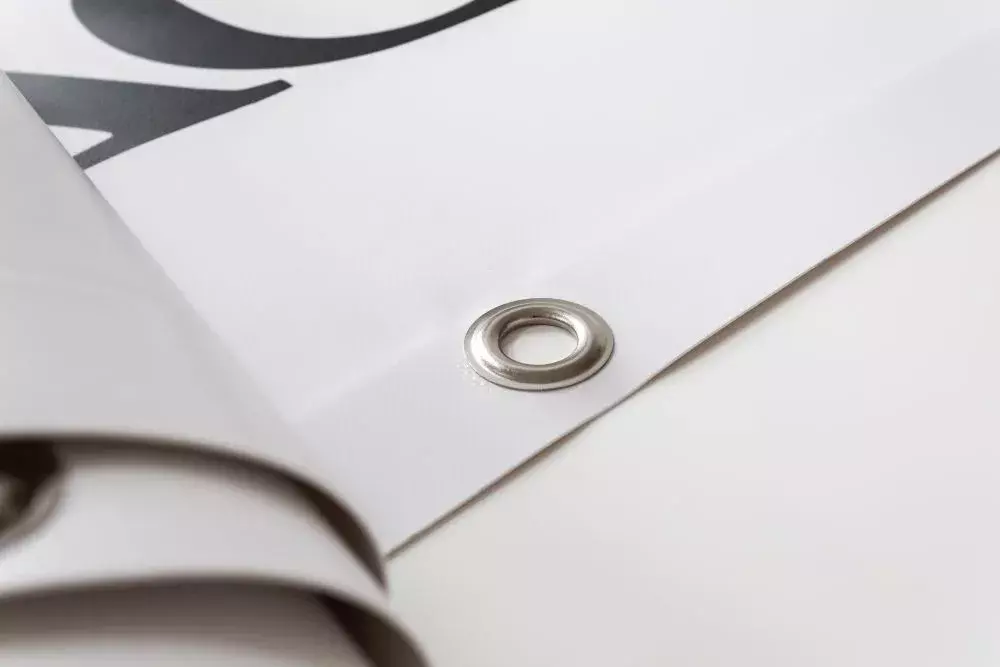The Importance of Quality and Strength When Buying Grommets
2023-09-19
The purpose of grommets is to add strength. By definition, they must be able to withstand high pressures and stresses! When you tie down a tarp, lace up a boot, or raise a flag, you rely on grommets to prevent the material from wearing and tearing.
The kind of forces the grommets experience will differ depending on the application, but generally, having grommets at all is better than having none!
Rubber vs. Plastic vs. Metal
You’ll never need rubber grommets for garments unless you’re making a specialized costume or some other niche custom product. Those grommets are reserved for electrical and construction uses. As for plastic, they don’t have nearly the strength or durability of metal grommets in some key areas.
1. Impact Resistance
While metal grommets may deform under severe impacts, they’re likely to stay intact. Plastic grommets experiencing the same forces can shatter or break.
2. Holding Strength
As for a grommet’s ability to stay together when subjected to prying or tearing, again, having any grommet at all is better than none. But plastic grommets will snap long before metal grommets will.
3. Break Strength
If a grommet is forced in different directions or subjected to extreme pressures from the laces or rope tied through it, it should be able to remain whole. As you may imagine, metal grommets are also superior to plastic grommets in this regard.
Plastic grommets do have positive qualities, including:
- They’re completely rust and corrosion-proof
- Their edges are softer, making them less likely to cut into the fabric
- They’re less noisy when smacking against surfaces
But if you want ultimate durability and longevity, you’ll want metal grommets.
Which Type of Metal Grommet Is Best?
There are several types of metal used for grommets, but the most common are brass and stainless steel. They each have advantages and disadvantages:
Brass
Pros:
The gold color may be better suited for particular aesthetics
More malleable than stainless steel, which makes them easier to install
Less expensive than stainless steel
Cons:
More malleable also means more likely to deform
Less overall strength than stainless steel
Stainless Steel
Pros:
Much stronger than brass
Incredibly corrosion and rust-resistant
Excellent material for self-piercing grommets
Cons:
More expensive than brass
Stainless steel’s hardness means it puts more wear on tools
Ultimately, either brass or stainless steel makes for excellent, long-lasting, and durable grommets.
You may also find aluminum grommets, but they are much rarer. The reason someone may want aluminum is that they’re lighter than brass or stainless steel and even more corrosion and rust-resistant. However, they aren’t as strong and aren’t intended for extreme applications.
Why Grommet Quality Matters
If adding any grommet at all increases strength, why does the grommet quality matter? The reason is that grommets must withstand continuous friction, compression, and other stresses while also protecting the fabric around them.
There are several important qualities grommets must have beyond what material they’re made from:
1. They Must Not Tear the Fabric
Quality grommets will not have sharp edges that compromise the integrity of the item’s materials.
2. They Should be Uniform
Deviations in size and appearance will be noticeable and detract from the aesthetics of the garment or item.
3. They Should Fit Together
The two pieces of the grommet — the washer and the barrel — should fit together properly during installation. If the pieces deform during the setting process and still don’t grip together, there’s a major issue!
4. Plating Should Last
Metal grommets may come with a plating, which can alter the color and add abrasion-resistant qualities. Low-quality plated grommets may begin to flake quicker than they should, which, in addition to being unattractive, may cause them to rust or corrode.
5. The Material Should Be Durable
Avoid grommets made from low-quality metal that deforms or breaks before its time. Just because the package states they’re made from stainless steel or brass, that doesn’t mean they are.
Get Quality Grommets and Tools From GoldStar Tool
To ensure you get high-quality grommets and tools, shop at GoldStar Tool. We source all our supplies from reputable vendors with a reputation for quality. And if you need advice on what tools or materials are right for your projects, don’t hesitate to contact us at GoldStar Tool.





